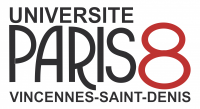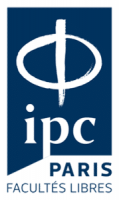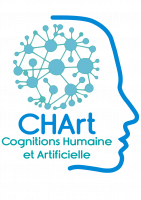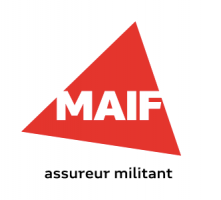
3nd International Conference on Human and Artificial Rationalities
17th-20th September - Paris, France - Hybrid Conference
At the Facultés Libres de Philosophie et de Psychologie
70 Avenue Denfert-Rochereau
75014 Paris
About HAR
The Human and Artificial Rationalities (HAR) conference series is focused on comparing human and artificial rationalities, investigating how they interact together in a practical sense, but also on the theoretical and ethical aspects behind rationality from three main perspectives: Philosophy, Psychology, and Computer Sciences. HAR aims at building bridges between these three fields of research …
read more...April – Abstract Submission
May – Paper Submission
July – Camera Ready Paper
Topics
Philosophy of human or artificial reasoning
- Artificial agents and morality
- Artificial extension of human cognitive capacities
- Artificial intelligence and epistemology
- Consciousness in artificial intelligence
- Epistemic virtues: emotions and rationality
- Epistemological status of reasoned beliefs
- Ethical and legal challenges of conversational robots
- Intelligence and rationality: distinction and intricacy
- Robot law and ethics on artificial reasoning
- Strong artificial intelligence: criticism and criticism of criticism
Psychology of human reasoning
- Belief revision
- Conceptual thinking
- Decision-making
- Influence of language and culture on thought
- Judgments of probabilities and other quantities
- Neuropsychology of reasoning
- Pragmatics
- Reasoning, either deductive, inductive, abductive, causal, moral, …
- Theory of Mind
- Thinking and disabilities
Human-Machine Interaction (HRI, HCI, ….)
- Acceptance and Trust in artificial agents
- Anthropomorphism
- Artificial agents for inclusion
- Best practices and overlapping lessons learned from deploying conversational agents
- Design of conversational agents such as coaching chatbots
- Evaluation of artificial agents
- Explainability of artificial agents
- Lifespan approaches of using digital devices in psychology (education, remediation, special needs)
- Psychologically based models of artificial intelligence
- Sociocultural aspects of the use of artificial agents
Keynote Speakers

Professor Emeritus at Université de Lorraine and Honorary member of the Institut Universitaire de France
Archives Henri-Poincaré - Philosophie et Recherches sur les Sciences et les Techniques (CNRS)
Roger Pouivet regularly intervenes at the Collège de France in the seminary of Claudine Tiercelin, particularly on the subject of epistemic virtues.

Professor Emeritus at Université de Lorraine and Honorary member of the Institut Universitaire de France
Archives Henri-Poincaré - Philosophie et Recherches sur les Sciences et les Techniques (CNRS)
Roger Pouivet regularly intervenes at the Collège de France in the seminary of Claudine Tiercelin, particularly on the subject of epistemic virtues.

Giulianella Coletti is a (currently retired) full professor in Probability Theory, since 1990.
She was the Head of the Department of Mathematics and Computer Science and President of the undergraduate and advanced degree courses in Computer Science at the University of Perugia.
She was Coordinator of the Ph.D. School in "Mathematics and Informatics to handle and represent information and knowledge" at University of Perugia. In this field she has also organized and co-directed various international schools for young researchers.
She was a member of the Scientific Committee of INdAM (Istituto Nazionale di Alta Matematica Francesco Severi) and is a member of two Italian Academies of Sciences, Letters and Arts.
She was also co-founder, President and CEO of ESEBEL (e-security, e-business, e-learning): a spin-off of University of Perugia.
The main research activity of Giulianella Coletti is in the field of uncertainty models and decision theory under partial knowledge. In particular, she has contributed to these fields by
building bridges between different theories and developing consistent hybrid models.
The results have been presented in many international conferences and published in a book (edited by Springer) and in about 200 articles.
She is also (co)-editor of six books and five special issues in international journals.

Giulianella Coletti is a (currently retired) full professor in Probability Theory, since 1990.
She was the Head of the Department of Mathematics and Computer Science and President of the undergraduate and advanced degree courses in Computer Science at the University of Perugia.
She was Coordinator of the Ph.D. School in "Mathematics and Informatics to handle and represent information and knowledge" at University of Perugia. In this field she has also organized and co-directed various international schools for young researchers.
She was a member of the Scientific Committee of INdAM (Istituto Nazionale di Alta Matematica Francesco Severi) and is a member of two Italian Academies of Sciences, Letters and Arts.
She was also co-founder, President and CEO of ESEBEL (e-security, e-business, e-learning): a spin-off of University of Perugia.
The main research activity of Giulianella Coletti is in the field of uncertainty models and decision theory under partial knowledge. In particular, she has contributed to these fields by
building bridges between different theories and developing consistent hybrid models.
The results have been presented in many international conferences and published in a book (edited by Springer) and in about 200 articles.
She is also (co)-editor of six books and five special issues in international journals.

Antonio Lieto is Associate Professor in Computer Science at University of Salerno (Italy), where he leads the Cognition, Interaction and Intelligent Technologies Laboratory (CIIT Lab) at DISPC, and a researcher at the ICAR-CNR Institute in Palermo (Italy). He is currently Member of the Scientific Board of the Italian Association for Artificial Intelligence and has been Vice-President of the Italian Association of Cognitive Sciences from 2017 to 2022. In 2018 he was the recipient of the “Outstanding BICA Research Award” from the Biologically Inspired Cognitive Architecture Society (USA), and is an ACM Distinguished Speaker on the topics of cognitively inspired AI. He has authored the book “Cognitive Design for Artificial Minds” (Routledge/Taylor & Francis, 2021).
His research interests are at the intersection of Artificial Intelligence and Cognitive Science and focus on the following areas: Knowledge Representation and Automated Reasoning, Commonsense Reasoning, Semantic/Language Technologies, Cognitive Systems and Architectures for Intelligent Interactive Agents, Persuasive Technologies. On these topics he has published more than 100 papers in top-tier peer-reviewed international conferences, journals and books.

Antonio Lieto is Associate Professor in Computer Science at University of Salerno (Italy), where he leads the Cognition, Interaction and Intelligent Technologies Laboratory (CIIT Lab) at DISPC, and a researcher at the ICAR-CNR Institute in Palermo (Italy). He is currently Member of the Scientific Board of the Italian Association for Artificial Intelligence and has been Vice-President of the Italian Association of Cognitive Sciences from 2017 to 2022. In 2018 he was the recipient of the “Outstanding BICA Research Award” from the Biologically Inspired Cognitive Architecture Society (USA), and is an ACM Distinguished Speaker on the topics of cognitively inspired AI. He has authored the book “Cognitive Design for Artificial Minds” (Routledge/Taylor & Francis, 2021).
His research interests are at the intersection of Artificial Intelligence and Cognitive Science and focus on the following areas: Knowledge Representation and Automated Reasoning, Commonsense Reasoning, Semantic/Language Technologies, Cognitive Systems and Architectures for Intelligent Interactive Agents, Persuasive Technologies. On these topics he has published more than 100 papers in top-tier peer-reviewed international conferences, journals and books.
Scientific Committee
Jean Baratgin (Université Paris 8, France)
Emmanuel Brochier (Facultés Libres de Philosophie et de Psychologie, France)
Julien Bugmann (Haute École Pédagogique du Canton de Vaud, Switzerland)
Charles El-Nouty (Université Sorbonne Paris Nord, France)
Patrice Godin (Université de Nouvelle Calédonie, France)
Hirofumi Hashimoto (Osaka Metropolitan University, Japan)
Baptiste Jacquet (Université Paris 8, France)
Frank Jamet (CY Cergy Paris Université, France)
Vassilis Komis (University of Patras, Greece)
Daniel Lassiter (University of Edinburgh, United Kingdom)
Laura Macchi (Universita Degli Studi di Milano Bicocca, Italy)
Laura Martignon (Paedagogische Hochschule Ludwigsburg, Germany)
Bernard N’Kaoua (Université de Bordeaux, France)
David Over (Durham University, United Kingdom)
Davide Petturiti (Università degli Studi di Perugia, Italy)
François Nollé (Facultés Libres de Philosophie et de Psychologie, France)
Hiroshi Yama (Osaka Metropolitan University, Japan)









